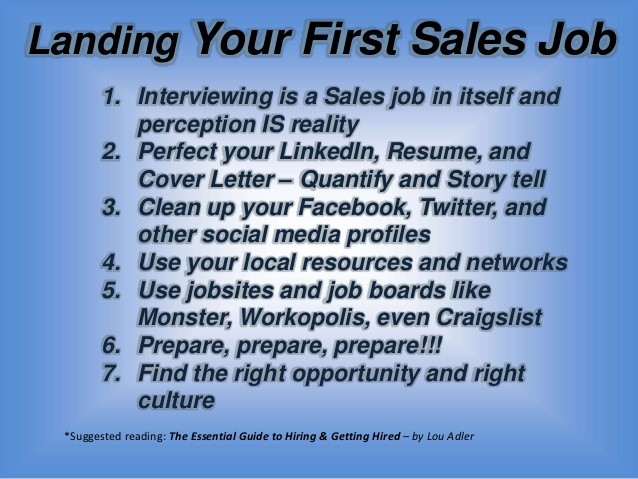Top 6 Ways To RecessionProof Your Job_1
Post on: 4 Апрель, 2015 No Comment

Investopedia 29-01-2015 Mark P. Cussen, CFP®, CMFC, AFC
Provided by Investopedia
During periods of recession. millions of Americans become victims of the inevitable workforce attrition that results from slumping sales and reduced cash flow. Personnel in the financial industry can be hit particularly hard, especially those who are in sales. But there are a number of things that financial planners and brokers can do to make themselves more valuable to both their employers and their clients. Read on for six tips to help you survive and beat recessionary job cuts.
1. Be Sure to Communicate
Regardless of whether you are an independent advisor with your own practice or an employee of a brokerage firm with your own clientele, staying in close touch with your customers is essential for your professional survival. In times like these, your customers are being bombarded on a daily basis with negative financial news from the media, their friends and relatives, and most likely their own emotions. This is when your input is needed the most, and failure to give it can easily result in the loss of your client to someone who will. (Clients shouldn’t expect more from you than you can give. Find out more in Manage Your Clients’ Expectations .)
Don’t wait for the phone to ring; create a letter addressing current market events and send it out. Find out what your clients think of current market conditions and the performance of their portfolios. Make every effort to help them see the current market from a long-term historical perspective. The most successful planners are the ones who are able to make their clients and prospects understand that when items are severely underpriced for their values, it may be the time to buy. (To learn more about professional correspondence, see Correspondence That Pushes The Envelope and On The Record: Communications With The Public .)
2. Adjust Portfolios
Although communication is vital, your ability to control your clients’ losses during a severe market downturn can be the deciding factor when it comes to customer retention. The judicious use of puts. option collars and other hedging strategies can make a huge difference in the numbers that show up on your clients’ monthly statements. (The articles Don’t Forget Your Protective Collar and Prices Plunging? Buy A Put! explain how to make money in falling markets.)
Long-term strategies such as periodic rebalancing and dollar-cost averaging will also aid in keeping your clients’ investment objectives within reach. Clients with depreciated holdings in taxable accounts can benefit from tax swaps. which can generate a consolation prize of capital losses that can be used to offset capital gains or income. (See Tax-Loss Harvesting For An Unsteady Market for a more detailed explanation of tax loss harvesting.)
Furthermore, exchanging losing equity positions for ETFs or other composite securities can also increase their diversification. Clients with larger realized short-term capital losses may want to consider converting their IRAs or qualified retirement plan money into Roth accounts, as those losses can be used to offset at least some of the income from the conversion that would be subject to taxes. Using market losses to the clients’ advantage will greatly elevate your perceived value in their eyes. (To learn more about these plans, see our A Tour Through Retirement Plans tutorial.)
3. Earn a Professional Designation
The media has been telling the public for years to seek stockbrokers, financial planners and insurance agents that have earned professional designations, such as the Certified Financial Planner ® (CFP®), Chartered Mutual Funds Counselor (ChFC) and Chartered Life Underwriter (CLU). Although there are many other designations pertaining to specific areas of specialization, these three are among the most widely known to the public.
Many fee-based advisors carry the CFP® designation as their mark of expertise, and this is the primary designation that has been endorsed by the media. But these credentials can serve both you and your clients in many ways, as they will enable you to spot more planning opportunities and increase your professional competence. Employers in the financial arena tend to look favorably upon employees who earn these credentials, and carrying these certifications will almost certainly make you a more valuable employee. Remember, it often takes money to make money, so if you have to invest in something to succeed, why not invest in yourself with an education? (Check out the article CFP®, CLU Or ChFC — Which Is Best? for more details about these designations.)
4. Be Willing to Offer Discounts or Extra Services
Losing money in a bad market is disheartening enough for your clients; making them pay fees and commissions on top of that is even worse. Of course you still have to make a living, but offering discounts and/or free services to your clients can be another source of consolation for them. If nothing else, it will show that you are willing to take some losses along with them.
A 25% discount in fees or commissions can do wonders to placate day traders, while free services such as income tax preparation or estate planning consultations can save your customers money, provide them with a substantial benefit and unearth new planning opportunities for your business.

5. Be Flexible and Proactive
Employees who keep a good attitude and volunteer for unpleasant tasks will always have a better chance of keeping their jobs than those who complain and shirk their responsibilities. However, attitude alone has seldom provided real job protection. The willingness to take business trips and transfer to another location may keep your employment on surer footing, and a willingness to work overtime performing tasks that no one else wants to do can elevate your status among your superiors.
Don’t underestimate the impact of your willingness to go the extra mile when layoff notices are being decided upon.
6. Keep Your Options Open
If you feel like there’s a real chance you may get the ax, don’t wait until a pink slip shows up on your desk before taking action. Update your resume and start talking to other employers now. Consult with your clients off the record to see how many of them will be willing to leave with you if necessary. (Keep in mind that if the firm you work for had you sign a no-compete clause when you were hired, as many do, there may be some legal issues regarding whether you can take clients with you when you move.)
Also don’t hesitate to join a local professional organization such as the Financial Planning Association or National Association of Insurance and Financial Advisors, which can offer you many resources in your job search, and many contacts to help you grow in your profession. (To learn more see Get Active, Join a Club! and Investment Clubs Pool Assets, Expertise .)
Conclusion
Both employees and independent financial practitioners can do many things to improve their job security. Client communication, loss mitigation, discounts and extra services are just some of the measures that can be taken to improve your standings with your clients and supervisors. But having a Plan B in place is essential in an uncertain job market where a good attitude and the willingness to work overtime may not make a difference.














